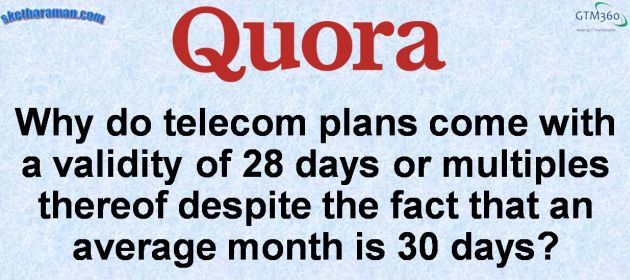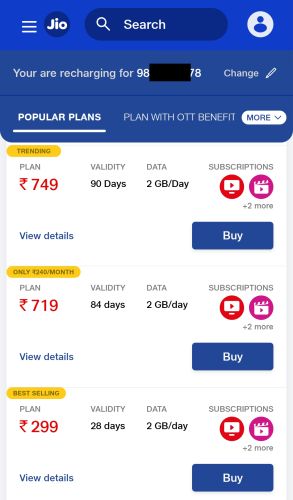This post is a slightly edited version of my answer to the following Quora question:
In coming up with plans with 28 days’ validity, I’m guessing TELCOs have been inspired by one of the 29 Psychological Tricks To Make You Buy More that leverage inherent biases exhibited by consumers.
According to this Visual Capitalist article, these consumer behavior traits are leveraged by some of the largest and most reputed companies on the planet.
The strategy of TELCOs has worked. Exhibit A: You associated their 28 day plan with a month even though they never called it a “monthly” plan. While you could call it obfuscation, it’s kosher as long as the companies leverage preexisting biases. Not legal or marketing advice but this strategy becomes unkosher only if a company creates a new bias.
Coming to the reason, I advanced the following explanation for Jio’s 28 days plan when I first encountered it five years ago.
ONE EXTRA PAYMENT PER YEAR
As against the industry standard of 30 days, I noticed that Jio’s INR 303 topup plan had a validity period of 28 days. I realize what Reliance Jio has done here: By trimming the validity period slightly – so slightly that most customers probably won’t notice it – Reliance Jio has created 13 payment periods per year (365 / 28 = 13.03) unlike other ISPs who get only 12 payments a year with their 30 day plans.
At the time, I’d wondered if the MNO had picked up this hack from Western Europe, where employees typically receive a 13th month salary as bonus each year.
Should hyper-sensitive consumers go running to the regulator to protest against 28 day plans, TELCOs can easily jack up their base price and offer plans for 30 days – or multiples thereof – without breaking a sweat.
Govt did say restaurant industry is not subject to price control, so it can bump up the base price if it wishes to get higher sales realization in the absence of service charge. Not sure why restaurants didn't do that and chose to sue the govt insterad.
— Ketharaman Swaminathan (@s_ketharaman) July 20, 2022
In the above example, assuming that the TELCO does not give any discount for the longer validity period of 30 days versus 28 days, it would peg the price of its 30 day plan at ₹325 (being ₹303/28*30).
Jio has already started offering 90 day plans, as I noticed on my last visit to its website to top up my connection.
As you can see, the 90 days plan (₹749) is costlier than the 84 days plan (₹719) by 30 rupees (for the same quota of 2 GB/day of data).
Let’s calculate the unit price in each of these three plans.
| PRICE | VALIDITY | UNIT PRICE |
|---|---|---|
| ₹299 | 28 days | ₹10.68/day |
| ₹719 | 84 days | ₹8.56/day |
| ₹749 | 90 days | ₹8.32/day |
Had the MNO applied the unit price of its 84 day plan, its price for the 90 day plan would be ₹719/84*90 = ₹770. However, by pricing it at ₹749, the TELCO has discounted the unit price for the longer validity period – something that it’s not under any obligation to do.

